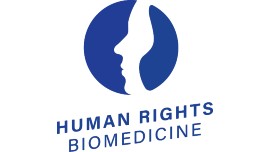HELP Online Training
Evolution of biology and medicine, including new technologies, has produced spectacular advances in the health field. However, these developments raise various issues that affect the individual and the protection of the individual’s rights and dignity.
These ethical and, in many cases, also legal issues arise in different areas, such as consent to medical intervention, the right to know one’s health data, matters related to medically assisted procreation, recourse to organ or tissue donation and transplantation, etc. All of them in certain aspects may fall into the scope of application of human rights law.
To address these issues and bring the relevant legal framework closer to the practitioners, the European Programme for Human Rights Education for Legal Professionals (HELP) and the Bioethics Unit of the Council of Europe jointly developed a HELP course on Key human rights principles in Biomedicine.
The course is aimed at assisting both legal and health professionals to understand the key human rights principles in the biomedical field. It covers both binding legal instruments, notably the Oviedo Convention and its Additional Protocols, as well as the relevant case-law of the European Court of Human Rights, and non-binding instruments adopted by the Steering Committee for Human Rights in the fields of Biomedicine and Health.
The topics are explored in a practical way, by using videos, interactive screens, case presentations, knowledge tests and reflective exercises.
The course consists of 8 modules:
- Introduction
- Free and informed consent
- Medical confidentiality and protection of health related data
- Protection of the embryo and procreation
- End of life
- Genetic testing
- Biomedical research
- Transplantation of human organs and tissues
HELP course Key human rights principles in bioethics










